Document Author
Year Published
Topic
- (-) Remove 100% Access to Justice filter 100% Access to Justice
- (-) Remove Best Practices for Self-Help Centers filter Best Practices for Self-Help Centers
- Self-Help Centers (24) Apply Self-Help Centers filter
- Trial Court Self-Help (24) Apply Trial Court Self-Help filter
- Strategic Planning (12) Apply Strategic Planning filter
- Reports, Evaluations, Best Practices, Surveys (10) Apply Reports, Evaluations, Best Practices, Surveys filter
- Research (10) Apply Research filter
- Courts (9) Apply Courts filter
- Simplification (9) Apply Simplification filter
- Linking a Self-Help Center to Other Services (8) Apply Linking a Self-Help Center to Other Services filter
- Reports (6) Apply Reports filter
- Articles & SRLN Briefs (5) Apply Articles & SRLN Briefs filter
- Justice Tech Entrepreneurs (5) Apply Justice Tech Entrepreneurs filter
- Plain Language & LEP (5) Apply Plain Language & LEP filter
- Technology (5) Apply Technology filter
- Triage (5) Apply Triage filter
- Managing a Self-Help Center (4) Apply Managing a Self-Help Center filter
- Plain Language (4) Apply Plain Language filter
- Scaling in Court Systems (4) Apply Scaling in Court Systems filter
- Starting a Self-Help Center (4) Apply Starting a Self-Help Center filter
- Allied Professionals (3) Apply Allied Professionals filter
- Evaluating a Self-Help Center (3) Apply Evaluating a Self-Help Center filter
- Forms (3) Apply Forms filter
- Forms (3) Apply Forms filter
- Triage & Service Portal (3) Apply Triage & Service Portal filter
- ATJ Commissions (2) Apply ATJ Commissions filter
- Ethics Education (2) Apply Ethics Education filter
- Judicial Ethics (2) Apply Judicial Ethics filter
- LEP and Access (2) Apply LEP and Access filter
- Libraries (2) Apply Libraries filter
- Working Groups (2) Apply Working Groups filter
- Administrative Agencies (1) Apply Administrative Agencies filter
- Automated Forms & E-Filing (1) Apply Automated Forms & E-Filing filter
- Best Practices (1) Apply Best Practices filter
- CCJ/COSCA Leadership (1) Apply CCJ/COSCA Leadership filter
- Clerk, Self-Help Center Staff, and Librarian Ethics (1) Apply Clerk, Self-Help Center Staff, and Librarian Ethics filter
- Consumer Adoption (1) Apply Consumer Adoption filter
- Evaluation (1) Apply Evaluation filter
- Human Centered Design (1) Apply Human Centered Design filter
- Impact of Self-Represented Litigant Innovations on Cost and Efficiency (1) Apply Impact of Self-Represented Litigant Innovations on Cost and Efficiency filter
- Integration with Institutional Process (1) Apply Integration with Institutional Process filter
- Judges (1) Apply Judges filter
- Law Schools (1) Apply Law Schools filter
- Legal Aid (1) Apply Legal Aid filter
- Regulatory Concerns (1) Apply Regulatory Concerns filter
- Remote (1) Apply Remote filter
- Surveys (1) Apply Surveys filter
- Unbundling (1) Apply Unbundling filter
State
- California (5) Apply California filter
- Maryland (2) Apply Maryland filter
- New York (2) Apply New York filter
- Pennsylvania (2) Apply Pennsylvania filter
- Alaska (1) Apply Alaska filter
- Idaho (1) Apply Idaho filter
- Illinois (1) Apply Illinois filter
- Michigan (1) Apply Michigan filter
- Minnesota (1) Apply Minnesota filter
- Missouri (1) Apply Missouri filter
- Montana (1) Apply Montana filter
- Utah (1) Apply Utah filter
Region
Tags
Post date
Search results
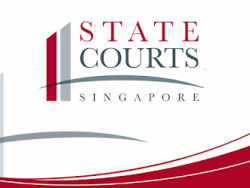
Weblinks: Simplification in Singapore (State Court of Singapore 2015)
Transparent information that seeks user feedback from the State Courts of Singapore about what a simplified court process means for SRLs in criminal, SRLs in civil, lawyers and others that can be found on the Singapore State Court's Key Features of t ...
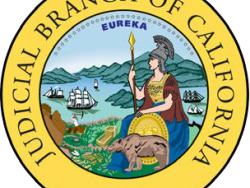
Weblinks: Elkins Family Law Task Force & Implementation Task Force (Judicial Branch of California 2010, 2013)
In Elkins v. Superior Court (2007) 41 Cal.4th 1337, the California court recommended that the Judicial Council of California establish a task force to “study and propose measures to assist trial courts in achieving efficiency and fairness in marital d ...
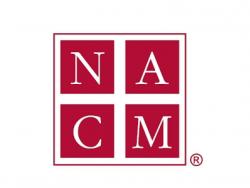
Article: Creating a User-Friendly Court Structure and Environment (NACM 2016)
This publication, from the National Association for Court Management (NACM), encourages the reader to this how the court environment- from the building, to the people, to the technology and resources- can be responsive to the needs and comfort of the publ ...
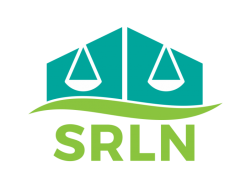
Survey: SRLN Tiers of Service Survey Tool (SRLN 2015)
The SRLN Tiers Survey was developed for states to conduct a quick tiered inventory of their court based self-help services. Tier 1 services are asynchronous (one-way), Tier 2 services are synchronous (two-way), and Tier 3 services integrate multiple provi ...
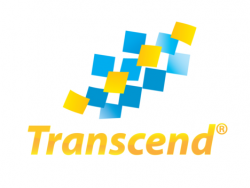
Report: A Comparative Readability Study of Plain Language Court Forms (Mindlin 2012)
This article presents the results from the first quantitative readability study of plain language court forms in the United States. Sixty citizens on a jury panel were selected to respond to brief questionnaires that tested relative comprehension of plain ...
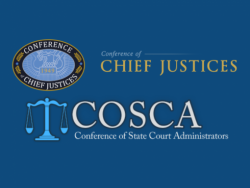
Resolution: In Support of Continuing Efforts to Meet Civil Legal Needs (CCJ/COSCA 2021)
In February of 2021, the Conference of Chief Justices and the Conference of State Court Administrators adopted Resolution 2 In Support of Continuing Efforts to Meet Civil Legal Needs. After extensive findings setting out the need, especially during the CO ...
Article: The Access To Justice “Sorting Hat” Towards A System Of Triage And Intake That Maximizes Access And Outcomes (Zorza 2012)
In this seminal article, Richard Zorza discusses the fact that we know little of the processes by which the millions of people who approach courts, legal aid intake systems, and hotlines are directed into them, or the access services they do or do not rec ...
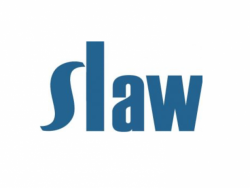
Article: Triage- A Vital Tool to Increase Access to Justice (Boyle 2013)
In this article in Slaw, Canada's on-line legal magazine, Kari Boyle reviews some of the triage activity in Canadian Civil Justice Reform. About the author: Kari D. Boyle is the Executive Director of the Vancouver-based Mediate BC Society, which off ...
Article: Some First Thoughts On Court Simplification: The Key To Civil Access And Justice Transformation (Zorza 2013)
From the Abstract: Given the discrepancy between access to justice needs and the resources that are realistically made available, current incremental approaches are almost bound to fail. The only realistic path to providing 100% of litigants with meaningf ...
Article: No Legal Advice from Court Personnel- What Does that Mean (Greacen 1995)
This is the seminal article that explores the underlying rationale that resulted in the blanket prohibition of clerk's not being able to provide information to the public for fear that it would be advice. In the article, Greacen suggests the framewor ...